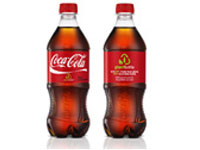 |
 |
In this Edition December 2011 |
LEAD FEATURE |
COMPANY NEWS |
MATERIALS NEWS |
MACHINERY NEWS |
INJECTION MOULDING ASIA |
RUBBER JOURNAL ASIA |
PRA December 2011 Electronic Issue Now Available |
Materials News
Coke to use PEF for its bottles
 |
Avantium recently opened its 40 tonne/year-PEF pilot plant in Geleen, the Netherlands. It is expected that other large co-development partners will join from early 2012.
The company states PEF can be derived from any biomass feedstock containing carbohydrates, such as sugarcane, agricultural residues, plants and grains. Using YXY as a fast and efficient chemical-catalytic technology, these carbohydrates can be converted into a wide variety of bioplastics. Current process economic estimates indicate that PEF will be a viable alternative to petroleum-based PET.
The collaboration with Coke is said to be key to secure a smooth transition into the mass production phase of PEF bottles. Avantium is also actively discussing partnerships with other leading brand owners to develop PEF bottles, fibres and film. In the longer term Avantium will license its YXY technology to enable large scale, world-wide production and use of its biobased plastic materials.
Coke is already making PlantBottle, said to be the first ever recyclable PET beverage bottle made 30% from plants. Since introduced in 2009, it has already distributed more than 10 billion PlantBottles in 20 countries worldwide.
Besides Avantium, Coke signed agreements with Virent and Gevo. Virent's patented technology features catalytic chemistry to convert plant-based sugars into a full range of products identical to those made from petroleum, including bio-based paraxylene - a key component needed to deliver 100% plant-based PET packaging. PET made from Virent's bio-based paraxylene features the same high quality and recyclability as materials used today, with the added benefit of being made from a wide range of renewable materials. The company is targeting early 2015 for the opening of its first full-scale commercial plant.
Gevo will develop and commercialise technology to produce paraxylene from bio-based isobutanol.
Separately, Coca-Cola already produces a fully recyclable HDPE that is made 100% from plant material and is available through Odwalla juice brand products. While HDPE is an ideal package for some refrigerated juice products, it is not suitable for shelf-stable carbonated and still beverages.


